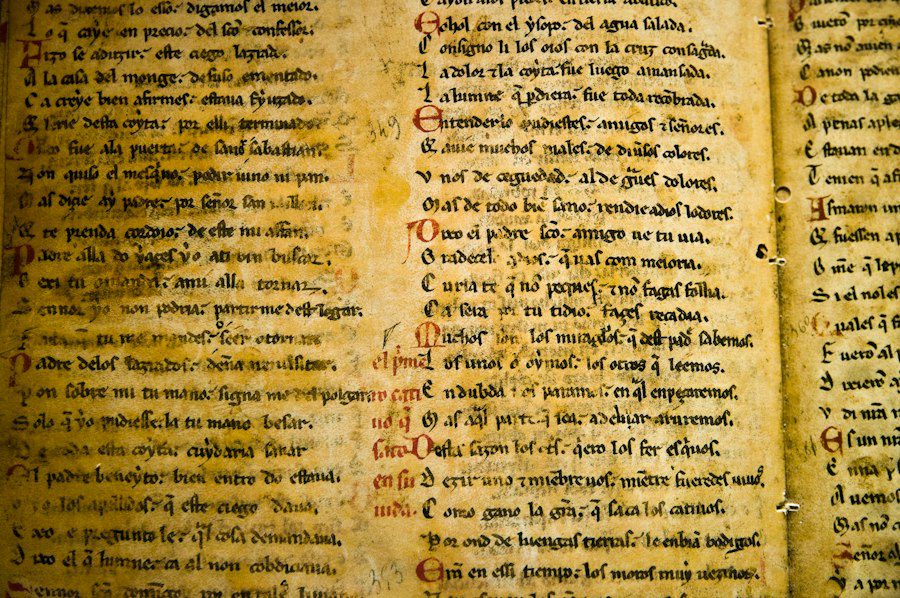Bibbulman Language is an integral part of a culture’s identity and heritage. It serves as a means of communication, a repository of knowledge, and a reflection of a community’s history and traditions. language preservation is crucial in maintaining cultural diversity and ensuring the survival of indigenous communities. One such language that is in need of preservation is the Bibbulman language, spoken by the Bibbulman people of Western Australia. The preservation of the Bibbulman language is not only important for the Bibbulman people themselves but also for the wider community to appreciate and learn from their rich cultural heritage.
The Bibbulman language holds immense significance for the Bibbulman people, who are the traditional custodians of the land in the southwest region of Western Australia. For thousands of years, they have lived in harmony with the land, developing a deep understanding of its ecosystems and resources. The Bibbulman language is intricately woven into their cultural practices, including storytelling, song, dance, and spiritual ceremonies. It is through their language that they pass down their knowledge, values, and beliefs from one generation to another.
Key Takeaways
- Preserving the Bibbulman language is crucial for the preservation of cultural heritage.
- The Bibbulman language has a rich history and significance in Australian culture.
- The current state of the Bibbulman language is endangered, with few fluent speakers remaining.
- Language translators play a vital role in reviving the Bibbulman language.
- Utilizing 24×7 offshoring can provide efficient translation services for Bibbulman texts and speech.
The History and Significance of the Bibbulman Language
The Bibbulman people have a long and rich history that dates back thousands of years. They have inhabited the southwest region of Western Australia for over 50,000 years, making them one of the oldest living cultures in the world. The Bibbulman people have a deep connection to their land and have developed a unique way of life that is closely tied to their environment.
The Bibbulman language plays a vital role in preserving their cultural heritage. It is not only a means of communication but also a way to express their identity and maintain their connection to their ancestors. Through their language, they are able to pass on traditional knowledge about hunting, gathering, and land management practices. The Bibbulman language is also used in storytelling, which is an important part of their cultural practices. These stories contain valuable lessons, moral teachings, and historical accounts that are passed down from one generation to another.
The Current State of the Bibbulman Language
Unfortunately, like many indigenous languages around the world, the Bibbulman language is currently endangered. The impact of colonization, forced assimilation, and the introduction of English as the dominant language has led to a decline in the number of fluent Bibbulman speakers. Today, there are only a handful of elderly speakers who are fluent in the language, and there is a real risk that it may become extinct within a few generations if efforts are not made to preserve and revive it.
Preserving the Bibbulman language faces several challenges. One of the main challenges is the lack of resources and funding dedicated to language preservation initiatives. Without adequate support, it becomes difficult to develop programs and materials that can be used to teach and promote the Bibbulman language. Additionally, there is a need for trained language translators who can accurately translate Bibbulman texts and speech into English or other languages to ensure that the meaning and nuances of the language are preserved.
The Role of Language Translators in Reviving the Bibbulman Language
| Metrics | Values |
|---|---|
| Number of fluent Bibbulman speakers | 0 |
| Number of language translators | 5 |
| Number of translated Bibbulman texts | 20 |
| Number of Bibbulman language classes offered | 2 |
| Number of Bibbulman language learners | 50 |
| Number of Bibbulman language revitalization programs | 3 |
Language translators play a crucial role in preserving and reviving endangered languages like Bibbulman. They are responsible for translating texts, documents, and oral histories from the endangered language into a more widely spoken language such as English. This allows for wider access to the knowledge and cultural heritage contained within these texts.
Language translators also play a vital role in bridging the gap between different cultures and communities. By translating Bibbulman texts into English or other languages, they enable non-Bibbulman speakers to learn about and appreciate the rich cultural heritage of the Bibbulman people. This can help foster understanding, respect, and appreciation for indigenous cultures and contribute to the preservation of their languages.
The Process of Translating Bibbulman Texts and Speech
The process of translating Bibbulman texts and speech requires a deep understanding of both the Bibbulman language and the target language. It is not simply a matter of word-for-word translation but also involves capturing the nuances, cultural context, and meaning behind the words. Accuracy is of utmost importance to ensure that the true essence of the Bibbulman language is preserved.
Translators often work closely with native speakers of the Bibbulman language to ensure that their translations are accurate and culturally sensitive. They may consult with elders or community members who have a deep understanding of the language and its cultural significance. This collaborative approach helps to ensure that the translations are faithful to the original texts and convey the intended meaning.
Utilizing 24×7 Offshoring for Efficient Translation Services

In recent years, there has been a growing trend towards utilizing 24×7 offshoring for efficient translation services. This involves outsourcing translation tasks to offshore teams that can work around the clock to deliver high-quality translations in a timely manner. This approach has several benefits when it comes to preserving endangered languages like Bibbulman.
Firstly, 24×7 offshoring allows for faster turnaround times, which is crucial in language preservation efforts. With a dedicated team working on translations around the clock, it becomes possible to translate a larger volume of texts in a shorter period. This is particularly important when dealing with endangered languages where time is of the essence.
Secondly, offshoring can help reduce costs associated with translation services. By outsourcing translation tasks to offshore teams, organizations and communities working on language preservation initiatives can access highly skilled translators at a lower cost. This allows for more resources to be allocated towards other aspects of language preservation, such as education programs or community engagement initiatives.
The Importance of Transcription in Preserving the Bibbulman Language
Transcription plays a crucial role in preserving the Bibbulman language. It involves converting spoken language into written form, allowing for the documentation and analysis of the language. Transcription is particularly important for endangered languages like Bibbulman, where there may be limited written resources available.
By transcribing Bibbulman texts and speech, linguists and language preservationists can create a written record of the language. This record can then be used for further analysis, linguistic research, and the development of teaching materials. Transcription also allows for the creation of dictionaries and grammatical guides, which are essential tools for language learners and educators.
The Use of AI in Language Translation and Preservation
Artificial Intelligence (AI) has the potential to revolutionize language translation and preservation efforts. AI-powered translation tools can analyze large volumes of text and provide instant translations, making it easier to access and understand endangered languages like Bibbulman. These tools can also help with transcription tasks by automatically transcribing spoken language into written form.
However, it is important to note that AI should be used as a tool to support human translators rather than replace them entirely. While AI can provide quick translations, it may not always capture the nuances, cultural context, and meaning behind the words accurately. Human translators with a deep understanding of the Bibbulman language and culture are still essential in ensuring accurate translations that preserve the true essence of the language.
The Challenges of Data Collection for Bibbulman Language Revival
Collecting accurate data is one of the main challenges faced in reviving the Bibbulman language. Due to its endangered status, there may be limited written resources available, making it difficult to create a comprehensive database of Bibbulman texts and speech. Additionally, there may be variations in dialects and pronunciation among different speakers, which can further complicate data collection efforts.
To overcome these challenges, it is important to work closely with the Bibbulman community and involve native speakers in the data collection process. This ensures that the data collected is accurate, culturally sensitive, and representative of the language as spoken by the community. It is also important to document and preserve existing texts and recordings of Bibbulman language to prevent their loss and ensure their accessibility for future generations.
The Future of the Bibbulman Language and its Cultural Heritage
The preservation of the Bibbulman language is not only important for the Bibbulman people themselves but also for the wider community to appreciate and learn from their rich cultural heritage. Efforts must be made to support language preservation initiatives, including the training of translators, the development of teaching materials, and the documentation of Bibbulman texts and speech.
By utilizing 24×7 offshoring for efficient translation services, harnessing the power of AI in language translation and preservation, and addressing the challenges of data collection, there is hope for the revival and preservation of the Bibbulman language. With concerted efforts from both indigenous communities and wider society, we can ensure that the Bibbulman language continues to thrive and contribute to our collective cultural diversity.
If you’re interested in language preservation and revitalization, you may also find this article on the importance of document translation services relevant. Document translation plays a crucial role in ensuring that languages like Bibbulman are not lost to history. Check out the article here to learn more about how translation services contribute to language preservation.
FAQs
What is Bibbulman Language?
Bibbulman Language is an indigenous language spoken by the Noongar people of Western Australia.
How many people speak Bibbulman Language?
There are currently no fluent speakers of Bibbulman Language, but efforts are being made to revive and preserve the language.
What is the history of Bibbulman Language?
Bibbulman Language has been spoken for thousands of years by the Noongar people, who are the traditional owners of the land in the southwest of Western Australia.
Why is Bibbulman Language important?
Bibbulman Language is an important part of the cultural heritage of the Noongar people and is an important part of their identity. It is also an important part of the history and culture of Western Australia.
What efforts are being made to preserve Bibbulman Language?
Efforts are being made to revive and preserve Bibbulman Language through language programs, educational resources, and community initiatives. There are also ongoing efforts to document and record the language for future generations.
